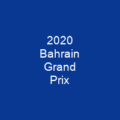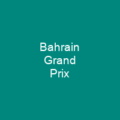Bahrain: A Historical Gem in the Persian Gulf
Imagine stepping into a land where history whispers through ancient ruins, modernity buzzes with bustling cities, and tradition dances alongside innovation. Welcome to Bahrain, an island country that has been a crossroads of cultures for millennia. How can such a small nation pack so much rich history and diverse influences?
A Historical Journey
Bahrain’s story begins in the Bronze Age with Dilmun, a trade hub connecting Mesopotamia and the Indus Valley. Over time, it was ruled by various empires like the Assyrians, Babylonians, and Persians. The island’s strategic location made it a valuable asset, changing hands multiple times over centuries.
During the classical era, Bahrain became known as Tylos to the ancient Greeks, who marveled at its pearl fisheries and rich culture. Can you imagine the treasures that once flowed through these waters?
The Portuguese Era and Beyond
Fast forward to the 16th century when the Portuguese seized control of Bahrain, only to be ousted by the Safavid Persians in the early 1700s. The Al Khalifa tribe then arrived, eventually establishing themselves as rulers. What kind of challenges did they face in consolidating their power?
The British intervened in the late 19th century, signing a protectorate agreement with Bahrain in 1868. This marked the beginning of a new era where Britain’s influence shaped the country’s destiny.
Modern Times and Beyond
In 1971, Bahrain declared independence, embarking on a path to modernization and economic diversification. The discovery of oil in 1932 transformed its economy, making it one of the first post-oil economies. Today, Bahrain is recognized as a high-income economy with strong ties to international organizations.
However, the road ahead has been fraught with challenges, including political unrest and human rights concerns. How can a nation balance tradition and modernity while navigating these complex issues?
Economic and Social Landscape
Bahrain’s economy is diverse yet heavily reliant on oil exports. The government has implemented Vision 2030 to transform the economy into a more sustainable one, focusing on tourism, financial services, and technology sectors.
Education plays a crucial role in Bahrain’s development, with several universities and institutions fostering innovation and research. However, access to education remains uneven, with significant disparities between citizens and non-citizens.
Cultural Diversity
Bahrain is a melting pot of cultures, with diverse religious communities coexisting peacefully. Islam is the state religion, but Christians, Hindus, Jews, and others are free to practice their faiths. How does this diversity shape Bahrain’s unique identity?
Sports and Entertainment
Bahrain hosts a variety of sports events, from Formula One races to international MMA championships. Cricket has gained popularity in recent years, with the country hosting its own premier league.
Cultural festivals like Spring of Culture celebrate Bahrain’s rich heritage through music, art, and literature. How do these events contribute to national unity and pride?
The Future
Bahrain faces numerous challenges, from economic dependency on oil to political instability. However, the country is making strides in diversification and innovation. What role will technology play in shaping Bahrain’s future?
As Bahrain continues its journey, it remains a beacon of cultural diversity and modern progress in the Middle East.

Bahrain’s story is one of resilience and adaptability, a testament to its ability to thrive amidst change. As it moves forward, the nation continues to balance tradition with progress, striving for a brighter future.
You want to know more about Bahrain?
This page is based on the article Bahrain published in Wikipedia (retrieved on February 1, 2025) and was automatically summarized using artificial intelligence.






